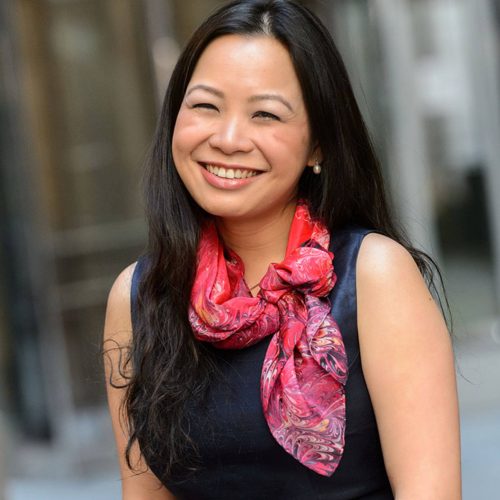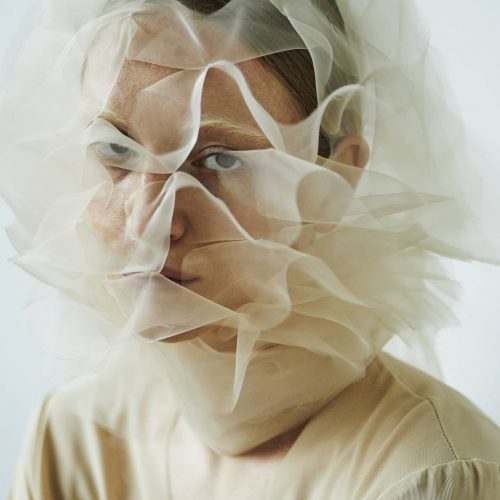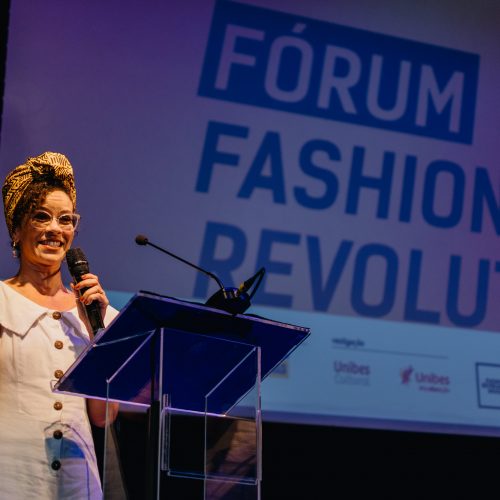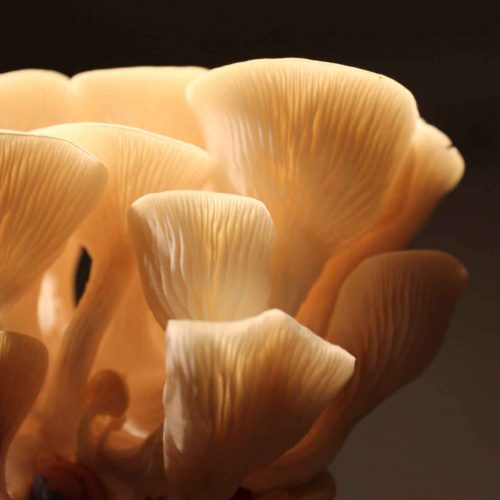Alabama Chanin | Interview | Creating an Inclusive, Fair Work for Generations to Come
Creating an inclusive, fair work environment for generations to come and cultivating cultural sustainability within the community and beyond, are two of the main definitions for Alabama Chanin and her work. The fashion designer is obsessed with responsibly design quality products that enrich life through a seed-to-shelf process. Luxiders Magazine interviews her to know more about her and her work.
"Less is more. Invest in fewer pieces that are well-made, thoughtfully designed, and ethically produced (that you also love). My personal philosophy on sustainable living lies in embracing style, and ultimately life and culture from an approach that is based on beauty and design, elevated and responsible. For me, this also means supporting small businesses and buying locally- and regionally-made goods for my life and my home as often as possible." -so starts our conversation with Natalie "Alabama" Chanin, an American fashion designer from Florence, Alabama.
We wanted to talk with Alabama Chanin in how to do slow fashion responsibly and right.
"We’re moving toward a more sustainable industry in part because consumers demand more of an ethical responsibility from brands. I believe the next step for improvement will depend on how companies position themselves within the culture, including creating inclusive communities and standing up for humanitarian rights." - Natalia Alabama says.
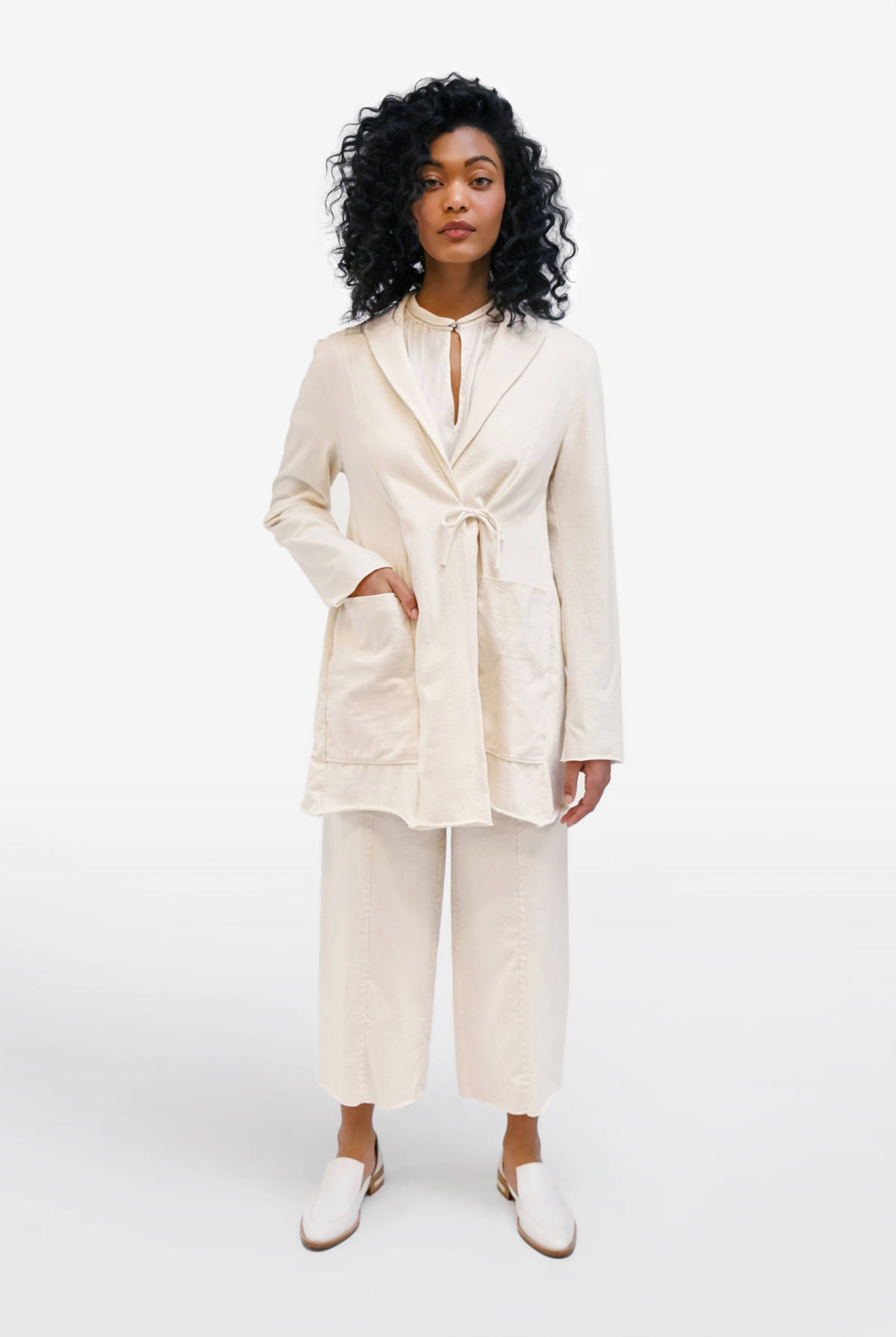
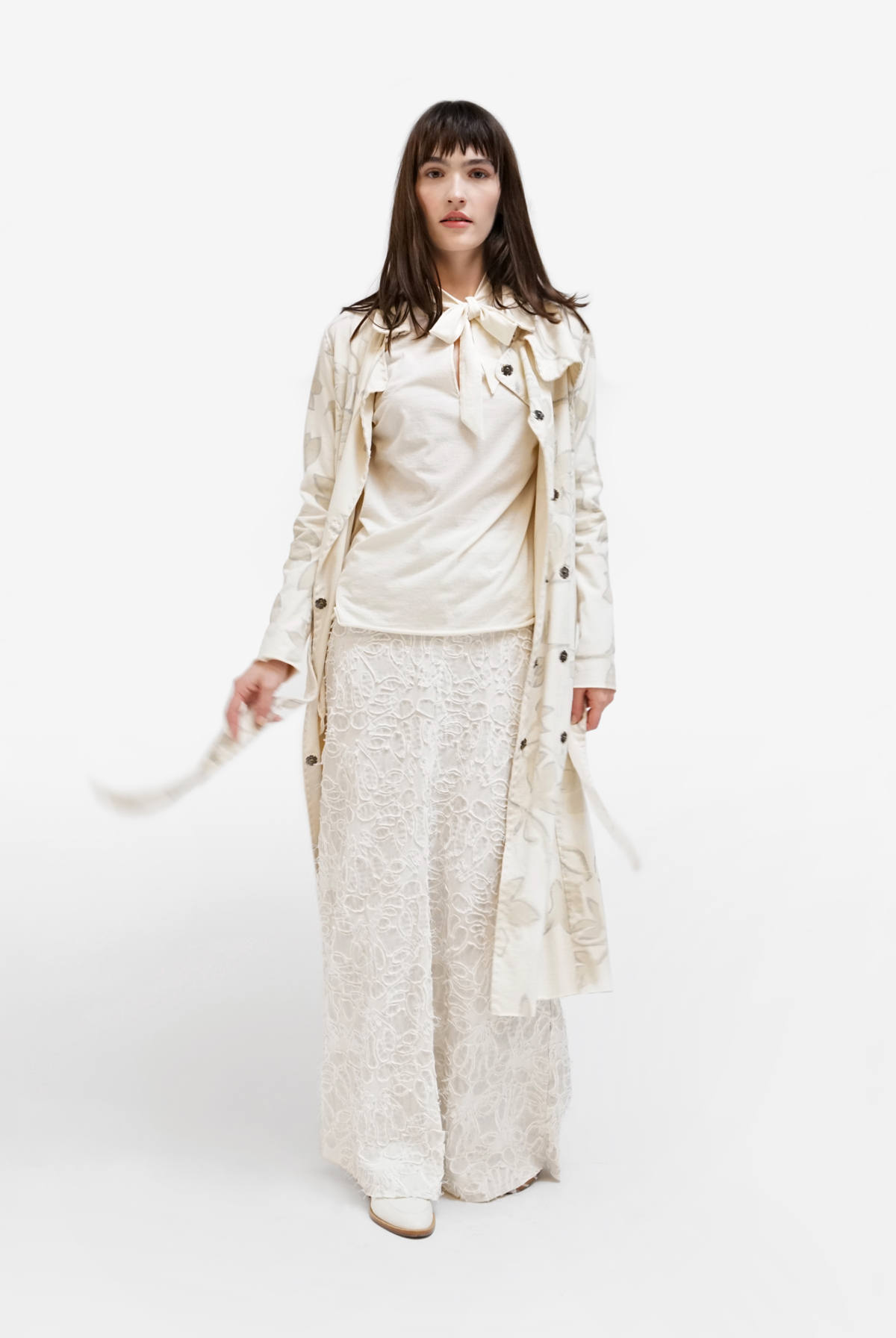
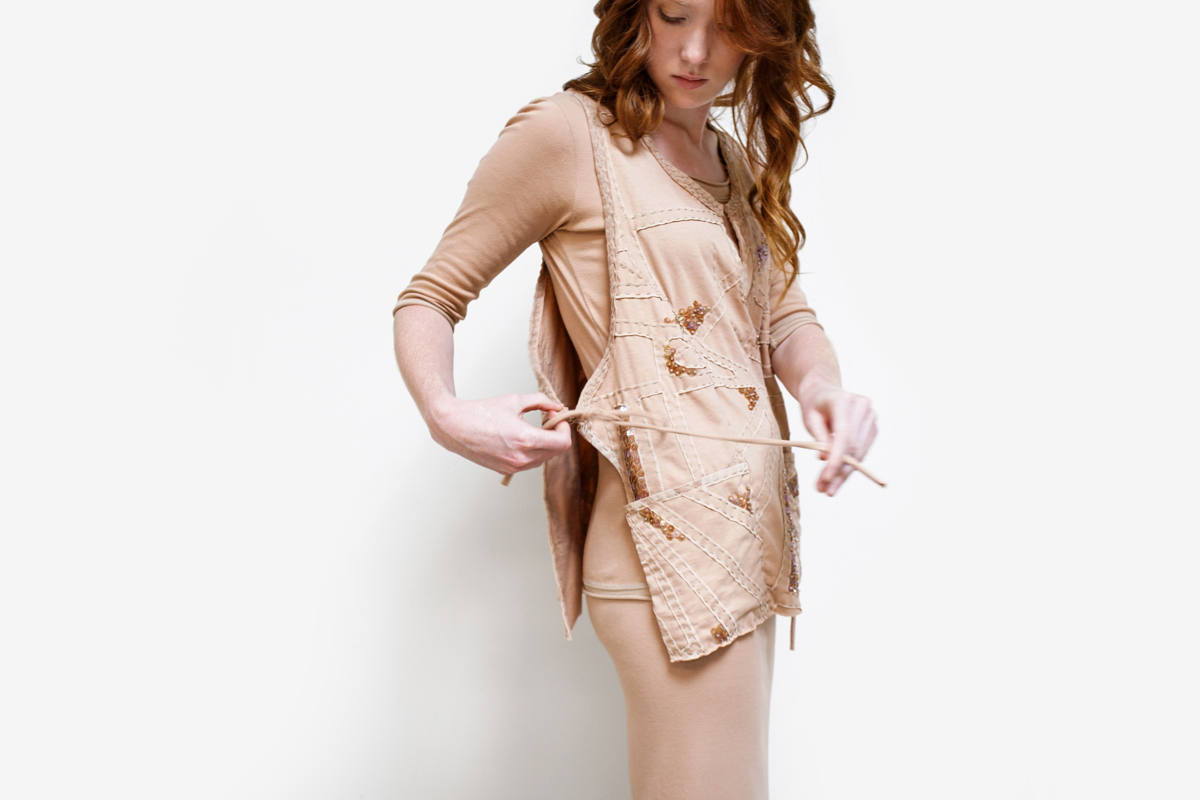
Why did you decide to create Alabama Chanin?
My career as a sustainable designer began over twenty years ago while I was on a sabbatical, having just returned from Europe to New York City. I had been living out of a backpack for some time and had the idea to deconstruct an old t-shirt, then sew it back together by hand. I began making these hand-sewn shirts every day and this work sparked the idea to create a collection of 200 one-of-a-kind garments constructed using upcycled t-shirts. This work became known as Project Alabama.
In 2006, I decided to branch away from Project Alabama and re-imagine the focus of my work as Alabama Chanin. Responsible manufacturing and investing in my community have always been important to me, and I wanted to position myself and the organization to reflect those ideals.
Alabama Chanin began over a decade ago with just three employees. Today, Alabama Chanin employs over 25 people from their community, who work onsite, and also collaborates with a group of about 25 independent contractors throughout their region who do our hand embroideries. Creating products that enrich life, community, and planet remains a priority.
Tell us about your Mission, Vision, Ethos and Commitments.
Alabama Chanin’s Mission Statement is more than a decade old, and still holds true today. These six guiding principles serve as a North Star and help our team navigate decisions, large and small. This mission statement helps Alabama Chanin evolve while remaining true and grounded with our core values: showing love and care in all our actions, in passionate pursuit to design; responsibly produce, and sell products and experiences that enrich life, community, and planet.
What is the importance of sustainable cotton and craftsmanship for your brand?
Organic cotton is the heart of Alabama Chanin. We believe that responsibility means understanding where each material comes from and whose hands it touches before it arrives to the consumer. These are the roots in our community of making.
Craftsmanship within our supply chain and process begins with the organic cotton farmer, whose skills were passed down by the previous generation, and ends with the artisan whose initials are written into an Alabama Chanin garment.
What do you think about fabrics made of recycled plastics or other “new materials” shaking the sustainable fashion world?
I believe that all efforts to design and produce sustainability should be supported. The decision to be more sustainable led us to choose organic cotton as our material of choice, but that isn’t the path for all. There are so many designers and artists re-imagining excess goods and breathing new life into what would otherwise be considered waste.
"We should all aspire to think outside the box in terms of waste and sustainability."
With the Florence Collection, you are celebrating 20 years of sustainable design... Congratulations. It is not easy to resist two financial crises. What is the secret of your success?
Our team is invested in what and how we make, which means showing up each day with a willingness to work hard, adapt, learn from others, and practice mindfulness. We also embrace the goal of 1% improvement—try to be 1% better every single day.

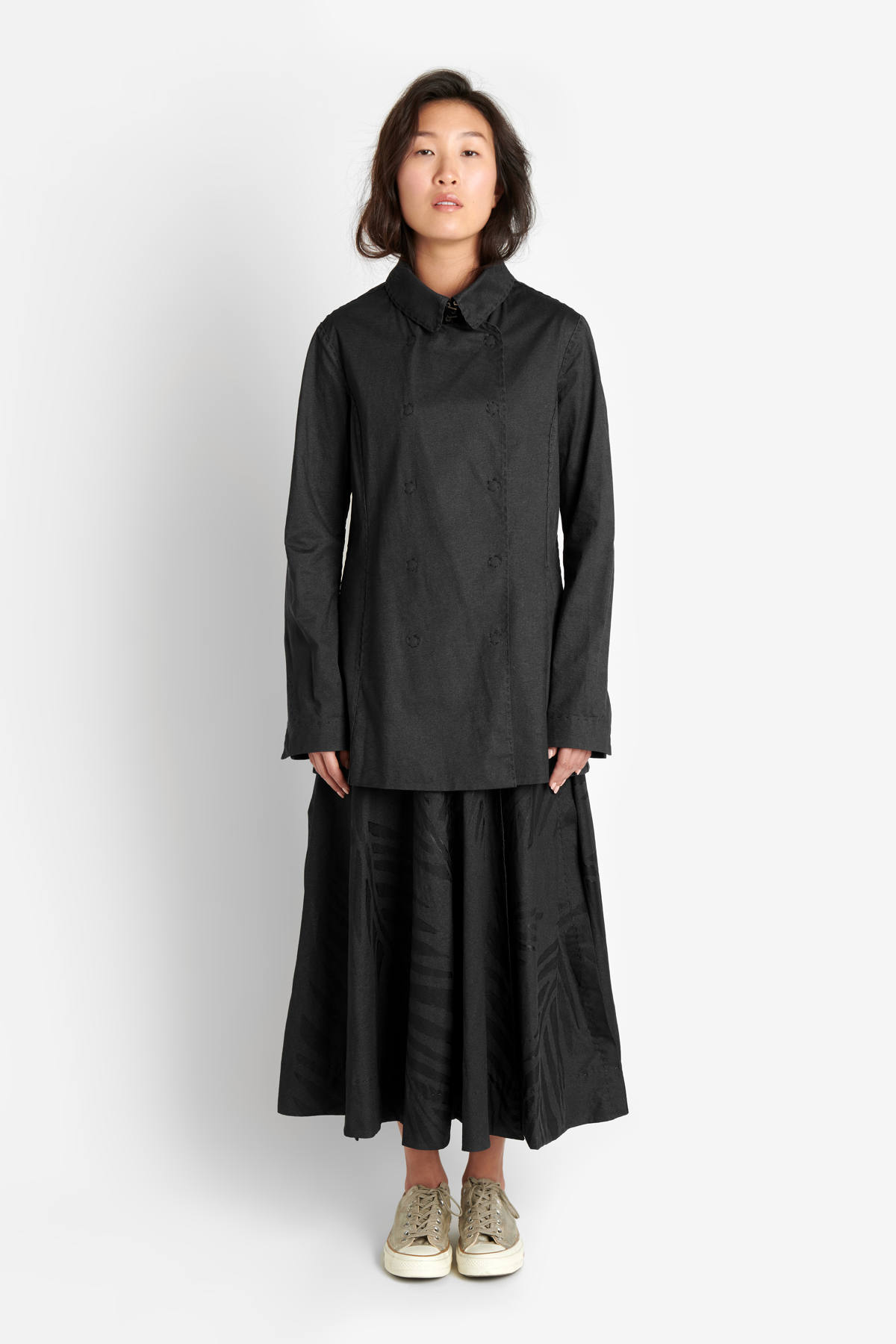
How do you select the fabrics? Do you do it personally?
Investing in fabric is a long-legged commitment for our company, so it requires our team to research and strategically plan how this fabric will be used within collections for years to come. Alabama Chanin and The School of Making share raw materials, so this helps us offer more colors within both collections and make more sustainable decisions when it comes to development and production.
How do you select your suppliers and artisans?
I was introduced to many of our suppliers through mentors or mutual friends in the industry. It’s essential that our suppliers share the same commitment to sustainability and quality that we do, while maintaining open lines of communication, should either of those commitments be at risk.
Many of our artisans have worked with us for the past twenty years. And we continue to find new sewers from our community through educational programs with our local school systems and college (the University of North Alabama), or by word-of-mouth.
Are you practicing Zero Waste in Design? How important is this for your company?
We strive for a zero-waste goal at Alabama Chanin. We are far from perfect, but we utilize every strategy available to us in the design and manufacturing process to get closer and closer to this goal. Scraps from our Collection pieces become trims and appliques. We’ve used the cloth from our stencil design studio to create reusable face masks and Collection garments.
"There is so much waste and pollution in the world, in all industries. Making responsible decisions requires imagination and problem-solving, but this has helped us grow our business and will continue to aid in creating a healthier environment for the next generation."
You say you are "makers and educators, working to elevate and merge design, craft,..” How do you do this?
In addition to the larger concept of traditional sustainability, there is a cultural sustainability that feels so important to me as a designer. The retention of stories and techniques that were passed down through generations of families and makers in America is vital to our culture, work life, and future. I want to preserve not only the processes, but also the stories and legacy of this community of makers.
In 2019, we created a not-for-profit initiative, Project Threadways, to record, study, and explore the history of textiles in our region and beyond.
What about The School of Making, ¿what is it?
The School of Making is an overseeing body that directs and innovates Alabama Chanin's learning initiatives and educational programing. Creating experiences that introduce the Alabama Chanin community to our techniques has created a better understanding of the what, why, and how of our making processes and the importance of an organic supply chain. The School of Making is an active voice in our local community, our state, and the making community, at large.
Nature seems to be an inspiration for your work...
I believe that inspiration is found everywhere, every day. I am continuously inspired by the community in which I live, the rich land that surrounds us, and the friends that I’ve gained along this journey. There is a long, long list of chefs, writers, designers, farmers, and thinkers that inspire me continually. I’ve been reading a lot of poetry and re-reading books that moved me as a young adult and that can offer a new perspective, as age can add new meaning. I’m an avid reader, and now listener, with so many books being available digitally, and the multitude of great podcasts out there.
What do you think about Fashion Weeks’ role nowadays?
Fashion Week—which has evolved into a year-long celebration of dressing—can be a great opportunity for designers to showcase their designs in whatever experience speaks to their work. I think it’s important that we continue making fashion inclusive to all creatives by offering more opportunities for new designers to showcase their work to industry leaders. The CFDA’s Runway360 and new ideas around timeless presentations have been great first steps towards providing global support for American designers. Additionally, we are beginning to rethink when designers can showcase their collections as well. All of these are good progress that make the process of making more inclusive.
How do you think fashion will develop in short terms?
We are investing in fewer well-made, thoughtfully designed pieces. This mindset of choosing quality over quantity not only allows, but encourages us to see our wardrobes in a new light. We are able to see the potential and versatility in well made garments, and find new ways to style our favorite garments to fit our lives at any given time.
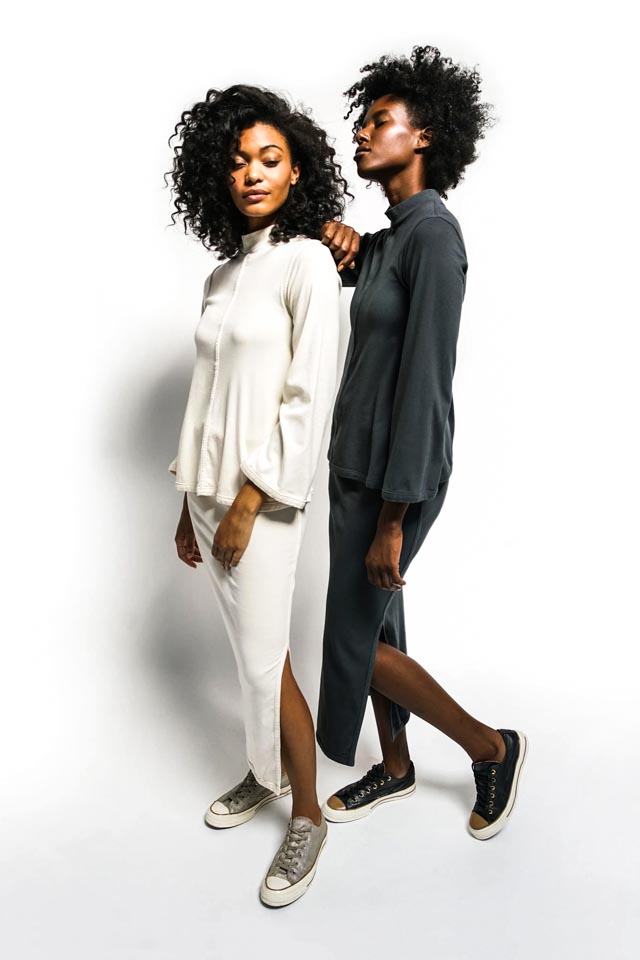
SS 2021 Collection
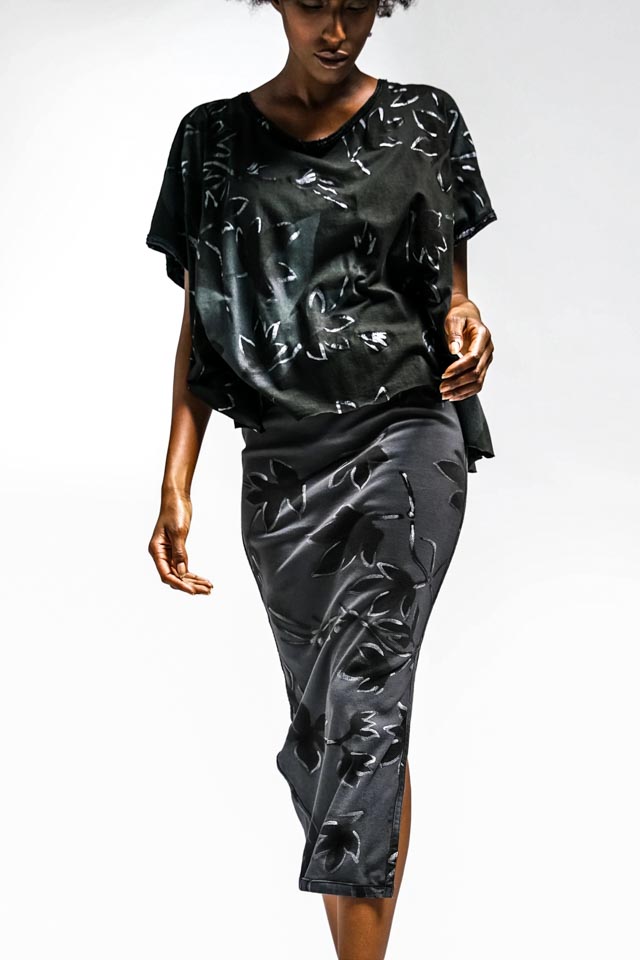
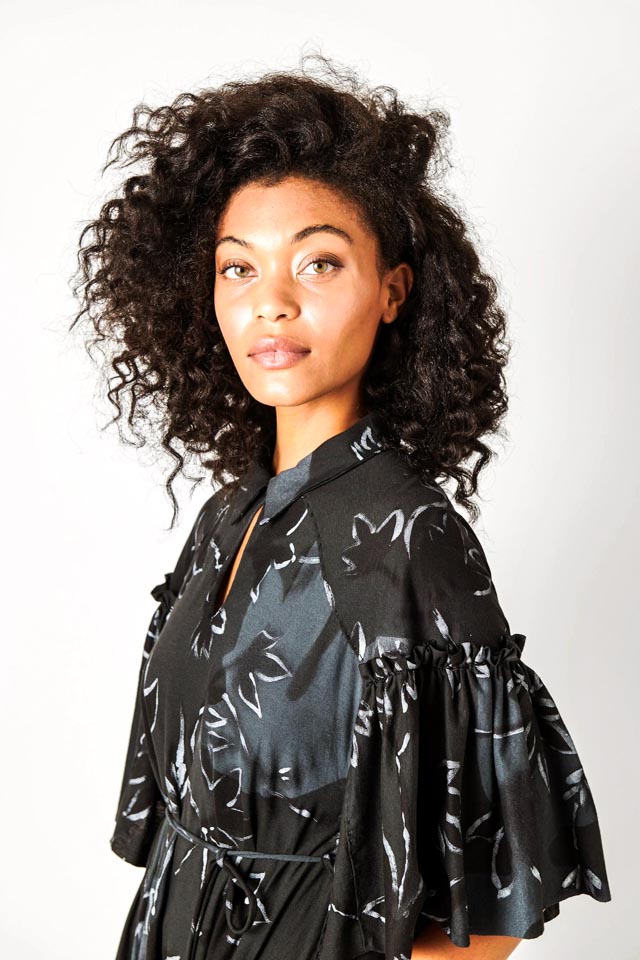
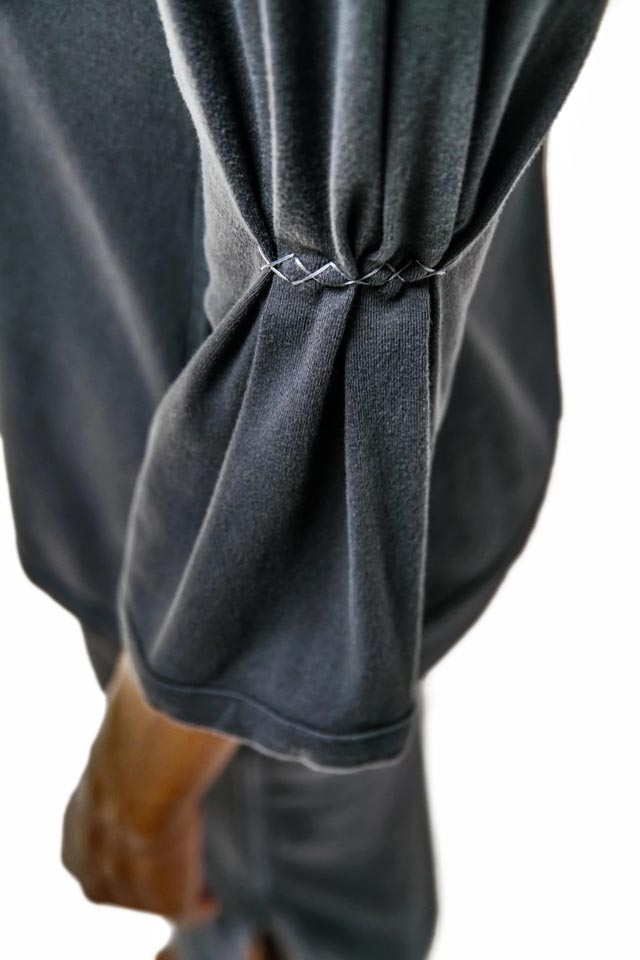
Alabama Chanin just completed their 2030 vision statement. Natalia plans to phase herself out of her current executive position and spend more time in her creative director role. Her hope for the future of Alabama Chanin is to continue being a pioneer of the slow design field and forge a way for others to follow this path.
They will continue to create products and experiences that enrich the community through the four divisions of their business and advance towards sustainable growth for generations to come.

